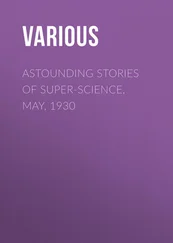“You found Makin a bride?” Sonya interrupted. She was getting impatient. Maybe Deda Misha didn’t know Makin that well after all? If they had been such great friends, wouldn’t he have come to his birthday concert, even though Oleg and her mother were there?
“Makin? He almost got himself a bride.” Deda Misha burst into such a fit of laughter that Sonya knocked over her cup of tea. She got up and found a rag to wipe the table.
“As I was saying, I built clubhouses, movie theaters, libraries, and gathered books to fill them. I required my workers to read, and then I held meetings to discuss the books. Who is the positive character? Who is the negative character? What is the author’s message? Useful, isn’t it? All the young people in town dreamed of working at my depot. It’s very pleasant to remember. If someone showed up drunk, I cut their salary. They understood and corrected their behavior. I had half of my depot staffed with West Ukrainians — very hardworking people, don’t drink, don’t smoke. East Ukrainians, Russians, Tatars, they all like to drink and curse. Nothing in this life I hate more than cursing. I still get phone calls and letters from all over the country from people whom I helped in Magadan. Da .
“I worked for thirty years as the director of large projects, in Magadan and then in Ukraine, building a pipeline under the Dnieper, and I wasn’t arrested once. I was very honest. I never used my connections to advance myself — I could’ve gotten in touch with Brezhnev if I wanted to, through relatives — but I didn’t want any promotions or medals I didn’t deserve. I never accepted bribes.”
“Maybe you should have.” Sonya’s father was standing in the kitchen doorway.
“And if the bribes had been slipped secretly, I returned them,” Deda Misha said. His face settled from surprise to babyish hurt. “Tolik, I’m sure you know that I would have gone to the camp for that, in our own backyard.”
“What’s three years? The curious thing is you usually get punished for small-time stuff. Steal billions and you’ll probably get away with it. Become best friends with the president, drink vodka together, and listen to Gutman live at your dacha.”
“That’s a good lesson to be teaching your daughter.”
“All right, Papa, tell us about Makin, like promised. Before your audience nosedives into the tea.”
“I was just laying the groundwork. Do you want some tea, Tolik?”
“I’ll make it. You get to your story.” Sonya’s tall father took up all the space in the tiny kitchen and cast shadows on the table as he moved.
“Tak.” Deda Misha cleared his throat. “Makin lived in a kommunalka room upstairs from us, on Park Street. As part of his sentence, he had loss of civil rights and was not allowed to travel beyond a certain region after he was released from the camp, and, of course, travel or move to the capital and major cities. Many people, after they had been officially acquitted, stayed in Magadan because their personal circumstances had changed. Say, they once had a wife, and now she’s dead or married to someone else. Or their family had rejected them. Many had found their second lives here.”
“Papa, we know you are an engineer to your core but less technical details, please.”
Sonya caught the spark in her father’s eyes and felt united with him against Deda Misha. Her father fixed the tea and brought it out to the living room. He returned and poured himself a glass of vodka.
“You drink too much, Tolik,” Deda Misha said.
“A little vodka keeps the spirit young and full of good ideas. A lot of vodka, on the other hand.” He drank from his glass. “She’s a grown-up, she made her own bed. She can sleep in his piss.”
Heat rushed to Sonya’s face when she realized he was talking about her mother and Oleg. She’d never actually seen Oleg drunk.
“My spirit is young, by natural method,” Deda Misha said.
“I wish we were all like you,” her father said.
“I am continuing. Tolik, please, no jokes.”
“I will leave in a minute,” Sonya’s father said. He remained by the window, his back pulling down on the pear-patterned curtains.
“Papa, you’ll snap the curtains,” Sonya said. “Just sit down, please.”
“I need to plan my great return, like the Count of Monte Cristo.”
“To America?” If that was true, she was ready to forgive him all his teasing, and everything he’d ever said about her mother.
“China,” her father said.
“China?”
“Sonya, what grade are you in?”
“Ninth.”
“Exactly. Don’t always believe the first thing you’re told.”
“Oh.” So, America! She could barely contain her thrill.
“ Vot, continuing,” Deda Misha said loudly, like a teacher starting a lesson. “Makin was our upstairs neighbor, but once, he was the most famous tenor in the USSR.”
“Like Pavarotti and Domingo,” Sonya’s father said.
“Really?” Sonya said.
“His mother and grandmother were gypsies and singers. That’s where he got his singing genes. Gypsies have beautiful songs, almost as beautiful as Ukrainian songs. In the twenties and thirties, Makin sold out stadiums, and when a new record came out, the lines outside the record stores were so unruly that horse-mounted police were dispatched to maintain order.”
“Like Beatlemania,” Sonya said. Her father winked at her. They were fans of the Beatles together, and she was annoyed that Oleg also loved the Beatles. Sometimes, though, she wanted Oleg to like her; she couldn’t explain it. Even when Oleg had said that her father was like the fool from “The Fool on the Hill.” He’d intended it as a compliment, talking about the wise fool. Her mother had overheard and warned Oleg that for as long as he lived in their home and ate their food, he was forbidden to say a word about Sonya’s father. But Sonya had understood what Oleg meant, and, in a way, she even agreed.
“He wrote his own songs or collaborated with a lyricist. And he had his own piano accompanist, his friend Mikhail Bondarenko. Another Ukrainian.”
“I think Bondarenko was a Jew,” Sonya’s father said.
“Yes, Jews are good musicians. Like gypsies, but more educated in the classical tradition, not as soulful.”
“As Ukrainians?”
“You are yourself an almost full-blooded Ukrainian, Tolik, you should be proud. Tak, next. The war. Makin sang at the blockaded Leningrad, the besieged Sevastopol, and for the sailors in Arctic Murmansk. By the way, because there was an ingredient in the plastic records that was necessary for some very important military production, people were called to bring in their broken or even new records for recycling. But Makin’s records weren’t accepted. He told me himself. On the contrary, his records were given out as a reward to the most active recyclers. He could hypnotize people with his voice. That’s why he lasted as long as he did. The veterans say he made them want to not just survive, but to live. To return home and find love.” Deda Misha got teary-eyed for a second, which made Sonya uncomfortable. She wondered whether any veterans had come to Makin’s concert tonight.
“In ’42, shortly before Stalin’s birthday, Beria called Makin, the story goes, and asked why none of his songs were about Stalin. Have you studied Beria at school yet? He was the chief of secret police. At an earlier interview with the KGB Makin was asked — which means he was ordered — to write a song about Stalin. Makin replied that songs about Stalin did not suit a tenor voice. Can you imagine Beria getting such an answer? Beria! Who had personally signed thousands of execution orders. Who rode around Moscow in a black car, picking out women and girls on the street, then raped and murdered them. Stalin was like a jealous husband; he couldn’t stand when someone might be more popular than him. Makin was sentenced to eight years in one of Magadan’s camps. Not bad as Gulag sentences go, and he didn’t have to do the real hard labor, where people died in the mines and from cold and starvation. He was part of the agitprop brigade with other singers, actors, poets, and dancers and performed at different camps. It was a part of the so-called cultural and reeducation program. The camp leadership always loved art, and of course wanted to use the talents of so many accomplished people who came their way. These brigades even received bonuses and extra pay, and they felt welcomed and needed wherever they went. Makin’s talent saved him, but still it was devastating. He was cut down at the height of his career.”
Читать дальше
Конец ознакомительного отрывка
Купить книгу












